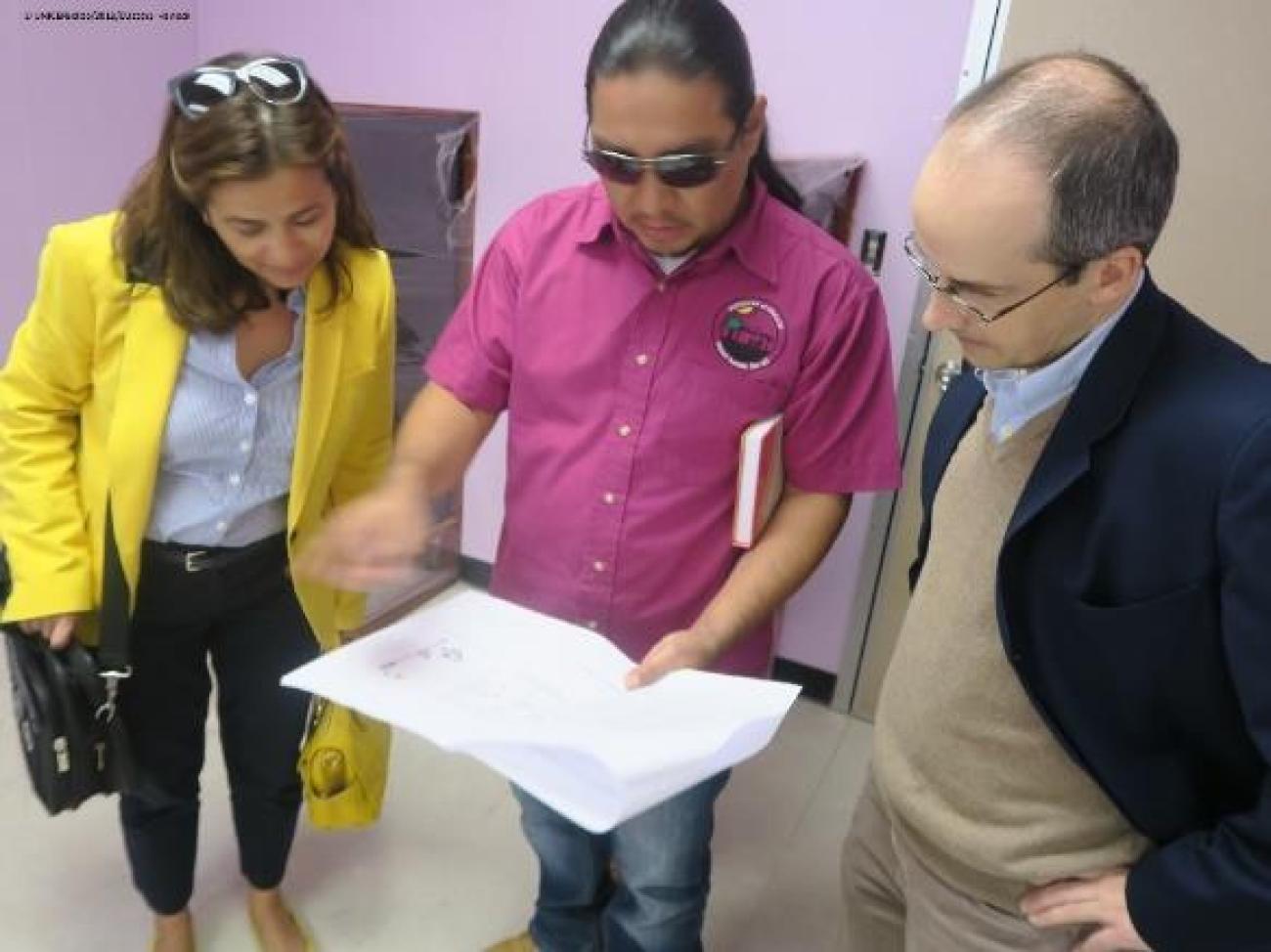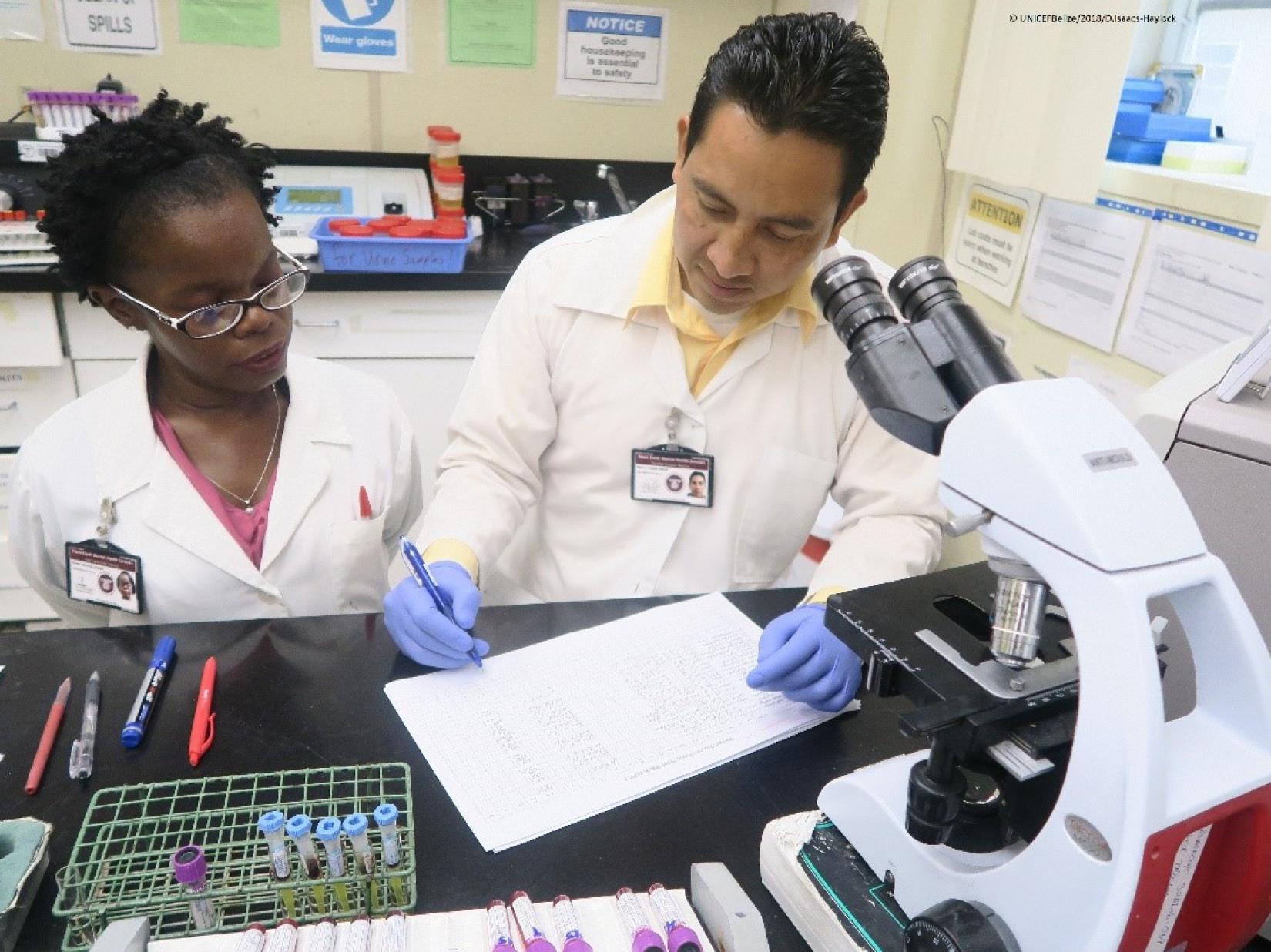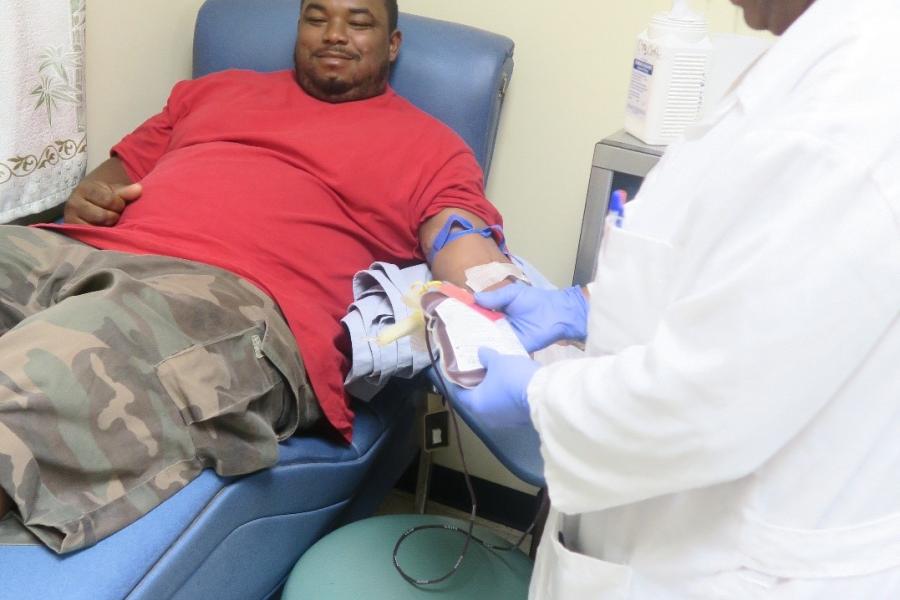Positively Impacting the Health of the Most Vulnerable

The Hospital’s laboratory is currently equipped with only one bed for blood donations and donors can only do so on a schedule offered during the afternoons.
Any day at the Southern Regional Hospital is a busy day… narrow hallways teeming with people… men, women and children. On this day, it was especially busy as a team of international doctors and medical officers were visiting offering services to the people. That is normal for Belize. Despite having its own medical professionals, often the more highly specialized medical interventions - diagnosis and surgeries are offered by visiting internationals who utilize the public hospitals to offer care to residents. For a country with limited financial resources and often challenged human resources lacking specialized experience, these partnerships with international hospitals and medical officers are most welcomed. The value of the support can never be overstated, considering that this southern regional medical facility supports two districts with a population of 75,000 people, many migrant, mobile, indigenous and highly vulnerable. The hallways teeming with people were matched by the excitement of the administrative and laboratory teams. Excitement because the modifications and renovations for a new laboratory were taking shape and it was literally just a matter of weeks before the team of five professionals would be able to relocate to the newly refurbished and outfitted facility. We greeted our hosts as they welcomed us to join them on a tour of the new space under renovation. Michel Guinand, UNICEF’s Social Protection Specialist is new to Belize and this was his first trip to the area, seeing the work being executed by UNICEF in collaboration with the Ministry of Health and with the valuable funding from the PROBITAS Foundation of Spain.
“This was our conference room,” stated the Hospital Administrator Nerissi Castro. Ms. Castro is the Administrator of the adjoining Dangriga PolyClinic and now as well of the Southern Regional Hospital. She explains that the relocation of the laboratory was absolutely necessary as the current space is tight and cramped. She along with the Chief of Staff for the Hospital Dr. Aimee Hunter explained the renovations being done will accommodate the office space for the Supervisor of the Laboratory, improve the spacing and flow for the efficient management of the laboratory services, house the current and newly acquired lab machines but also critically upgrade the air conditioning cooling system for the laboratory.
“In the current laboratory, some machines must be turned off, so they do not over heat,” explained Dr. Hunter an explanation supported by Laboratory Supervisor Ms. Desiree Joseph. While the project does not fund the air-conditioning system, the procurement with national counterpart funds sees to the preservation of the equipment and the conditions necessary for laboratory services. Ms. Joseph confirms the need to ensure such suitable atmospheric conditions are maintained. A native of Southern Belize, locally trained and having spent her entire professional life serving the people in the area has seen the transition from what was the Dangriga Hospital serving primarily the people of the Stann Creek District to now the Southern Regional Hospital, expanding its service catchment area to the entire Stann Creek and 55 communities of the deep south, Toledo District.
The 19-year veteran, although short in stature, has been the giant at the helm of the hospital’s laboratory for all those years. “When I first arrived, what you see here was the best thing ever, but we have grown, our population in the area has grown, the variety of services from the lab has grown. Our space is no longer adequate.”

 She explained that although the team is small and very often heavily taxed with the work, the services are critical and can’t be compromised. Five professionals that include three lab technicians, her as the Supervisor also serves as the Parasitologist and one Phlebotomist who doubles as a Microscopist comprise the small staff that offer diagnostic services in this government facility to the 75,000 people of the entire southern Belize. “The hospital laboratory needs more space for its phlebotomy services among others,” she said. “We need to be able to offer services all the time and not just on schedules as we do now. The new space will solve a big part of our shortcoming. We will have more space. More space for our equipment, more space to accommodate an easier more efficient flow of the work and more space to accommodate our people whom we serve.”
She explained that although the team is small and very often heavily taxed with the work, the services are critical and can’t be compromised. Five professionals that include three lab technicians, her as the Supervisor also serves as the Parasitologist and one Phlebotomist who doubles as a Microscopist comprise the small staff that offer diagnostic services in this government facility to the 75,000 people of the entire southern Belize. “The hospital laboratory needs more space for its phlebotomy services among others,” she said. “We need to be able to offer services all the time and not just on schedules as we do now. The new space will solve a big part of our shortcoming. We will have more space. More space for our equipment, more space to accommodate an easier more efficient flow of the work and more space to accommodate our people whom we serve.”
While the project with PROBITAS will bring a solution to space issues and provide much needed new equipment, she admits it won’t resolve the huge expectations placed on the shoulders of the small staff. Nevertheless, Ms. Joseph spoke with such pride; pride that she makes no apologies for insisting that each of her staff displays. It is apparent she has been able to shepherd the team well. That pride was clearly observed as the technicians extended service to the people. The Phlebotomist Ms. Olympia Ramclam was preparing a patient for a blood donation. She worked quietly but diligently putting her patient at ease as she prepared to draw blood.
The patient, Mr Lindy Cadle had traveled the two and a half hours from deeper in the south – Independence Village to make this blood donation. “It is a good thing we have this hospital,” he said. “I am here to help my aunt who is to have a surgery.” His aunt is a senior citizen who had been admitted to the hospital earlier in the week and awaiting her surgery. The blood donation was being made in the event she needed such.
The medical services in Independence Village are met by a PolyClinic that is equipped only with a general practitioner, who must serve all patients no matter the illness. Surgeries can’t be accommodated at that facility. Clients in need of that specialized care must travel to the regional hospital. This means any visiting family member or person acting as a blood donor to support that specific surgery must also travel to the Southern Regional Hospital’s laboratory to be able to make the extraction.

The Hospital’s laboratory is currently equipped with only one bed for blood donations and donors can only do so on a schedule offered during the afternoons. Of course, in an emergency, the laboratory does make the needed exceptions. Ms. Joseph observed as I chatted with her client and staff member. Then she added, “This is the gap that the new lab will alleviate. We will be able to extend this service more regularly.”
When asked if the cramped space and work load is not too much of a stress. She responded with enthusiasm, “No! What we do is of great value to our people. I encourage my staff that we must be ready to serve all the time. We must love what we do and be happy to do our work, doing it with professionalism, insisting on quality all the time.”
She looked at me and explained, “While I am a supervisor, I spend very little time sitting behind a desk in my office. I pitch in and perform laboratory tests as well. I test my staff periodically. I do not just conduct staff evaluations. I conduct written and practical tests, ensuring their knowledge is sharp and they can demonstrate continuous improvement.” Ms. Joseph insisted that even as their formal education is complete and are now working, her and her staff must stay informed; must keep reading and researching; ensuring they are aware of the latest development and information in each of the specific technical areas and their training must be ongoing.
That was clearly supported with the words of Dr. Gerhaldine Morazán, Director of Medical Laboratory Services. Dr. Morazan explained that Ms. Joseph has been critical for the national training of lab technicians in parasitology. When asked about this, Ms. Joseph smiles big and her excitement is evident even more.
“In fact, I enjoy the work as a Parasitologist. I am quite experienced in that area,” she said.
Her expertise and the value of this small space and team can’t be understated. Recently, the data from the laboratory through its parasitology studies and testing established that there was a parasite infection problem for children in the area. “This data supported the work for the national Maternal and Child Health Unit in the Ministry of Health,” said Ms. Joseph. “Because we were able to demonstrate with evidence this problem the Maternal and Child Health Unit conducted de-worming programs across the primary schools in the entire area.” She is most proud of the impact this has on children’s health.
In another instance, she explained that the renal survey conducted in the area utilized critically the services of her laboratory and her team. “We showed the high prevalence of hypertension in the area. Understanding the impact this non-communicable disease has on the people’s health and kidney condition we are able to support critical health education and medical outreach.”
Her closing words are as impactful as her work. “This is not just a job… it is an opportunity to educate.
Our work is valuable to the overall health of our community.”

